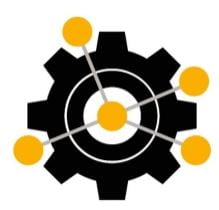By: Keaton Fletcher
Although most people groan and take a bit longer getting ready for work Monday mornings, lamenting the short weekend, David Blustein, Jonas Masdonati, and Jérôme Rossier, suggest maybe we should count our blessings instead since work is a key component of the human condition. In a recent report, Blustein and colleagues highlight the psychological factors that work plays in the human experience. By calling upon vocational and industrial-organizational psychological foundations, the research team identifies ways in which work can actually better people’s lives.
Blustein and colleagues elaborate on the notion of decent work, the idea that jobs that better individual, family, and community health and well-being are inherently decent. Research has consistently pointed toward the lack of a job as a cause of mental health symptoms and increased domestic violence. Obtaining work, particularly decent work, can help minimize these negative outcomes. In the modern economy, however, Blustein and colleagues suggest that precarious work (i.e., work with no clear long-term trajectory, inadequate benefits, or minimal opportunities for skill development) is becoming more common, and may not carry with it the same benefits of decent work. In fact, evidence suggests that precarious work, too, may be associated with mental and physical health problems.
One of the main psychological phenomena Blustein and colleagues focus on in their report is that of identity and self-concept. In the United States, at least, it is common when meeting someone to be asked “What do you do for a living?” or “What are you?” These questions highlight just how closely tied our work is to our understanding of ourselves, and our own identities. People who are involuntarily excluded from the workforce face a challenge of establishing this identity, and may struggle to maintain a positive global self-concept (overall beliefs about oneself). Those who voluntarily step back from remunerated work find themselves having to explain and justify their choice and new identity to others, and, possibly, to themselves.
It may not only be people outside of the paid workforce that lack the benefits to self-concept and self-esteem that work provides. Individuals in precarious or indecent work may also not reap these benefits. Those who change jobs or occupations frequently (an increasingly common phenomenon), or those who work in occupations that are not socially valued or desirable may not be able to easily identify with their work, or incorporate their work identity into their self-concept. It can be challenging, then, to reap the psychosocial benefits of work. To see improved individual well-being society must find ways to aid in the creation and solidification of identity and self-concept for those in non-traditional, precarious, or indecent work, or perhaps make decent work more accessible.
If you are interested in decent work or related initiatives, follow the links below:
UNESCO Chair of Lifelong Guidance and Counseling
International Labour Organization’s Decent Work Agenda
United Nations’ Sustainable Development Goals (Goal 8)







